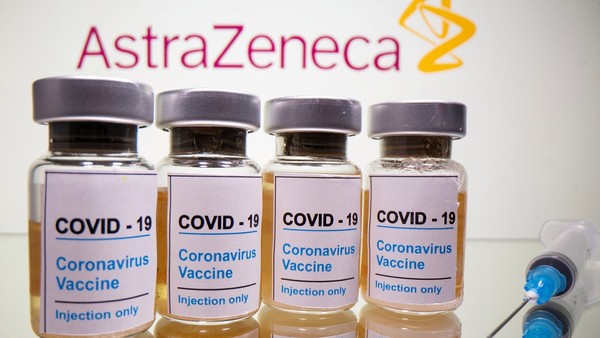The Ministry of Food and Drug Safety said Monday that it would complete the approval process of AstraZeneca’s Covid-19 vaccine in 40 days to start vaccination in late February.

The ministry aims to shorten the existing licensing process for AstraZeneca's vaccine from the conventional 180 days for rapid approval and review in keeping with the government's plans to start vaccination in late February at the latest.
AstraZeneca has applied for approval for its vaccine after conducting clinical trials on healthy people over 18 years of age, including those over the age of 65, in the U.K. and Brazil. It is also conducting additional clinical trials in 10 countries, including the U.S. AstraZeneca plans to finalize its research process by September.
The U.K. was the first country to approve AZ’s vaccine on Dec. 30, after the company proved its efficacy on 11,636 test candidates. The EU health authorities have also been conducting a rolling review to approve the vaccine since last October. The company is in the process of listing the vaccine in the World Health Organization's (WHO) Emergency Use List (EUL) as it pursues to supply the vaccine globally.
According to the Korean regulator, AstraZeneca Korea has submitted two applications for the vaccine -- vaccines manufactured locally by SK Bioscience and additional vaccines imported from Italy, U.S., and U.K.
In approving the vaccine, the ministry's High-tech Product Licensing Office will conduct a preliminary review of the submitted data. Then a clinical trial expert team will review the non-clinical and clinical trial data.
The ministry plans to evaluate the vaccine's effectiveness thoroughly in preventing infections after vaccination during the process.
"The prophylactic effect of the vaccine in clinical trials is calculated based on the proportion of individuals infected with the virus after vaccination in both the vaccination and placebo group," the ministry said. "For reference, the ministry plans to use WHO's Covid-19 vaccine guideline recommendation, which set a preventive efficacy baseline of at least 50 percent."
The ministry also plans to survey criteria other than the efficacy of the vaccine.
"As on-site surveys are limited due to the Covid-19 situation, the ministry plans to confirm compliance with good clinical practice (GCP), such as the reliability of clinical trial results conducted overseas, through document review," the ministry said. "Also, we plan to conduct a factory situation survey, including facility and environmental management and quality assurance system, to check the implementation status of the company's good manufacturing practice (GMP)."
Afterward, the ministry will come up with a review opinion to determine the permit's validity and the grant final approval through consultation with the Central Pharmaceutical Affairs Council, composed of external experts.
AstraZeneca vaccine is a viral vector vaccine that stimulates the body to create neutralizing antibodies. It uses a replication-deficient viral vector based on a weakened version of the adenovirus, which causes infections only in chimpanzees and contains the Covid-19 virus spike protein's genetic material.
The vaccine produces surface spike protein after vaccination, priming the immune system to attack the Covid-19 virus if it later infects the body.
According to AstraZeneca, the vaccine is for those older than 18 and requires patients to receive two doses with a period of one to three months in between. The company has also set the vaccine's storage condition at temperatures between 2 and 8 degrees Celsius.

